10 Years in Ukraine: Recipe for Success by DESPRO
"DESPRO is the most lasting project ever implemented by the Swiss Resource Centre and Consultancies for Development. Over 10 years, we, together with Ukraine, lived through numerous commotions and victories, we had to respond to unexpected challenges and came through many ordeals but did not leave the way of reform - that is why the DESPRO Project managed to achieve powerful successes and progress in the process of its implementation", that theme was the key one in the complimentary speech of Juerg Christen, Managing Director of the Skat - Swiss Resource Centre and Consultancies for Development, and DESPRO Managing Director.
"The DESPRO Project has already become more than a project. That is a tool to implement changes. That is the on-line community of practices uniting thousands of people all over the country. That is the recipe for success," Director of the Swiss Cooperation Office in Ukraine Holger Tausch noted.
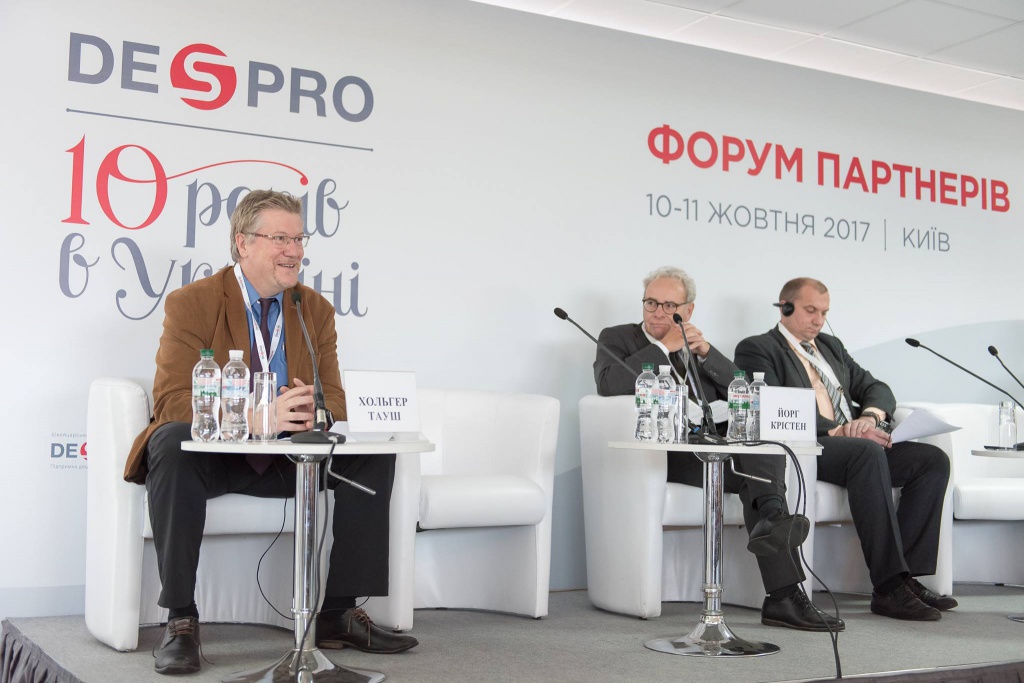
Indeed, there was much talk about achievements and prospects of the DESPRO Project at the two-day Partners Forum and it was a pleasure that, for the most part, partners of the Project in the area of local self-government shared their success resulting from their cooperation with the DESPRO Project since it offered them an opportunity to achieve a new level of understanding the decentralisation reform and in implementing social transformations in the territories of their communities.
"Initially, they called us a water project, because the DESPRO Project began its work dealing with water supply issues in villages", Oksana Garnets, the Project Manager in Ukraine, observed in her speech. "But we understood that, in fact, the objective of the project was to enhance the capacity of local self-government, increase the critical mass of people who would become the driving force of the reform. We expanded the areas of the Project operations, began to deal with the issues pertaining to solid waste management, provide assistance to the communities on legal matters and strategic planning, publish methodological recommendations and handbooks, arrange for training at the On-line Community of Local Self-Government Practices and full-time instruction at the School of Local Self-Government."
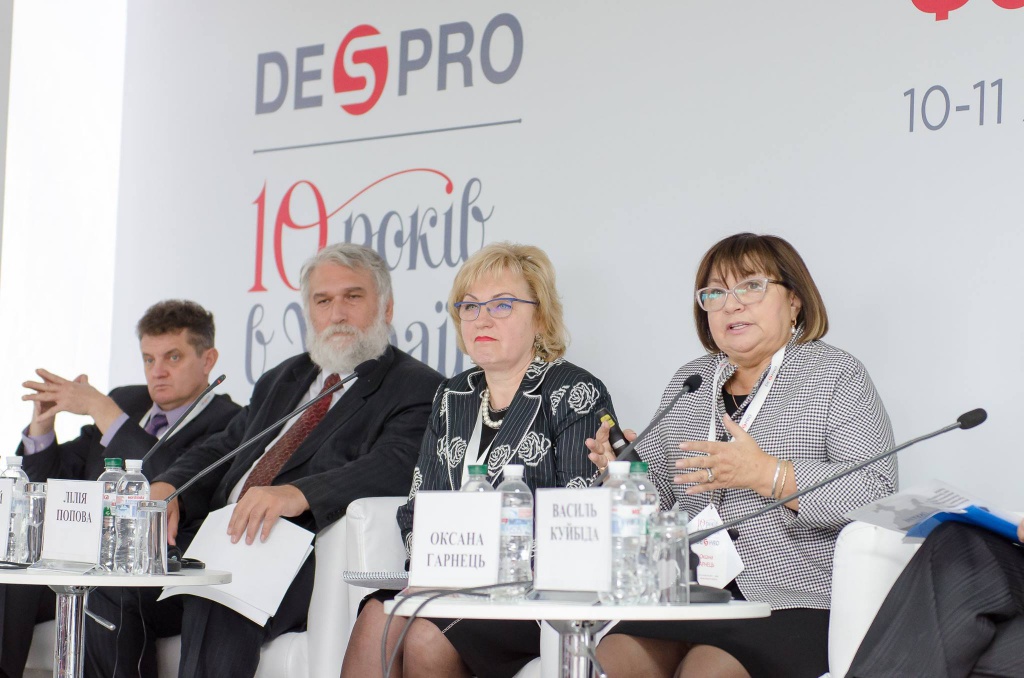
The speeches delivered by representatives of the Ministry of Regional Development, experts, and partner regions of the Project proved to be the best acknowledgement of the statement made by Oksana Garnets.
In particular, Vasyl Kuibida noted that the germs of cooperation of the DESPRO Project with the Ministry of Regional Development appeared already at the time when he headed it. As of 2014, active cooperation began, consequently, Director of the Department of Self-Government and Territorial Structure of Power Serhii Sharshov called the DESPRO Project a battle buddy and partner of the Ministry of Regional Development in implementing the reform.
Expert Yurii Hanushchak emphasised in his emotional speech: "Ukraine needs no second hand that is often proposed to the local self-government as the approved experience of other countries. The DESPRO Project makes original things in the decentralisation process, and thereby it differs from others."
The process of professional improvement and training of specialists within the local self-government was illustrated by personal example of Oleksandr Korinnyi who told about his way from a graduate of the School of Local Self-Government to the Chairman of the Novoukrainska Amalgamated Community in Kirovohrad Oblast, and the Chairman of the Association of Amalgamated Communities, and a trainer of the DESPRO School.
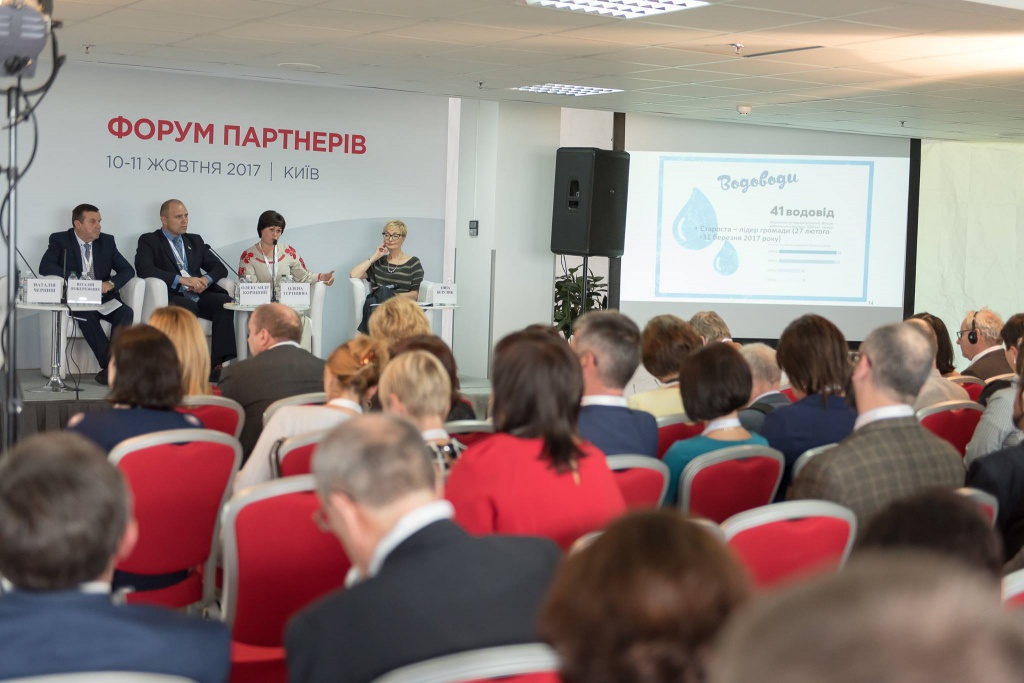
First Deputy Head of the Tulchynska Rayon Administration Vitalii Poberezhnyk represented materials on cooperation of the Vinnytsia region with the DESPRO Project. That cooperation resulted in the creation of an integrated solid waste management system, the construction, and commissioning of a modern solid waste landfill. Moreover, this case is the first successful example of inter-municipal cooperation.
After the official part was over, the participants were offered an opportunity to join topic-specific round table discussions.
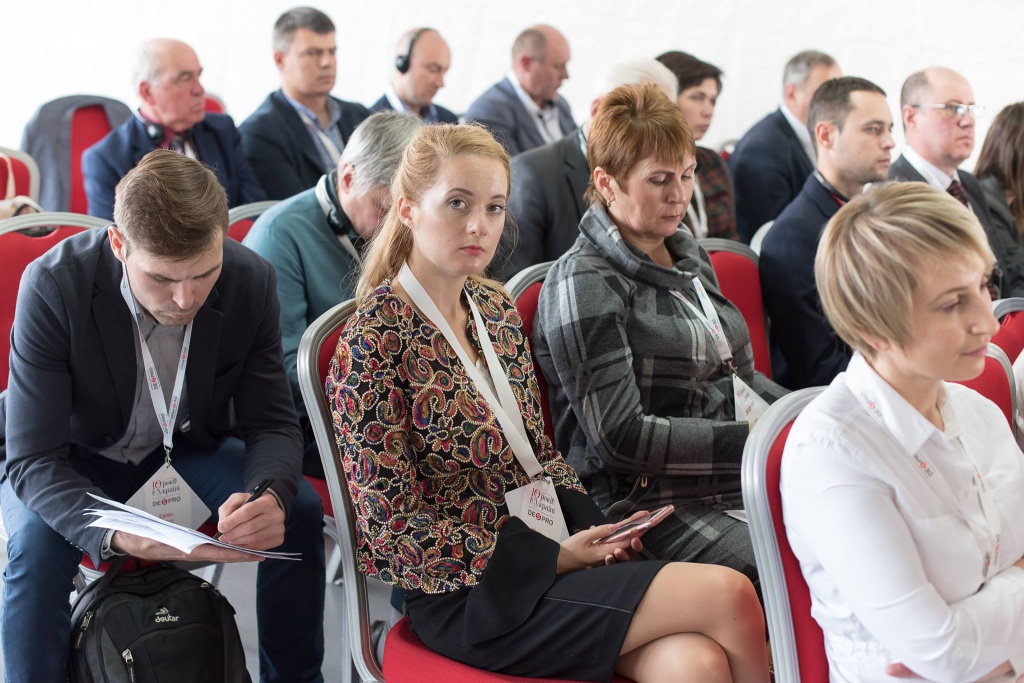
Within the framework of the first round table, the participants discussed the content of state sectoral policy in the area of decentralisation, the possibilities of its improvement, and development prospects.
The second round table gathered experts on financial development of the ATCs, which experts discussed, together with the stakeholders, the possibilities of raising additional monetary funds which would ensure financial sustainability of the ATCs, and the matter of municipal and corporate bonds as the tool of infrastructure projects in communities.
The topic of the third round table made it possible to reveal the mechanisms of cohesion in ATCs and the meaning of local identity in that process. For the purposes of discussion, the participants segregated two approaches to the formation of a cohesive community: according to one approach, initially, general identity of the amalgamated community is formed and only thereafter, the identity of separate settlements in the ATC; the second approach asserts that some competition in terms of self-representation promotes the formation of identity of an individual settlement and thereafter, the general identity of the ATC members. Also, within the framework of the round table discussions, the indicators of community cohesion were distinguished.
The last presented chronologically but not the least topic pertaining to the implementation of the reform was the informational support to the reform. In particular, at the fourth round table, the concept of a new information system in the context of implementation of the reform was presented and promotional solutions of the decentralisation awareness campaign were discussed.
Practice-based cases of the DESPRO Project were presented on the second day of the Forum's work, at the section dealing with the planning and introduction of utility services in the amalgamated territorial community. In particular, the emphasis was put on the importance of strategic approach in services planning, the possibilities of improving the efficiency of services provided, and the significance of a municipal enterprise to ensure the sustainability of services.
Graduates from the School of Local Self-Government, participants of the On-line Community of Local Self-Government Practices, and everyone were offered an opportunity to discuss future development prospects of the both trends at their section discussions. In particular, the participants outlined the possibilities of further development of the DESPRO School and assessed its impact on the activities of local self-government bodies and discussed a possible framework of its operation after the DESPRO Project is over.
At the section devoted to activities of the On-line Community of Practices, the issues pertaining to various levels (initial/ advanced) of the e-course on project management were discussed, as well as how to promote the engagement of participants of the On-line Community beyond the e-training.
At the communication section, there were assembled experts and representatives of local self-government bodies looking for tools to manage social processes in the community. Within the framework of that section, representatives of communities told about the challenges faced by them in the informational work with the population and shared their experience of successful response.
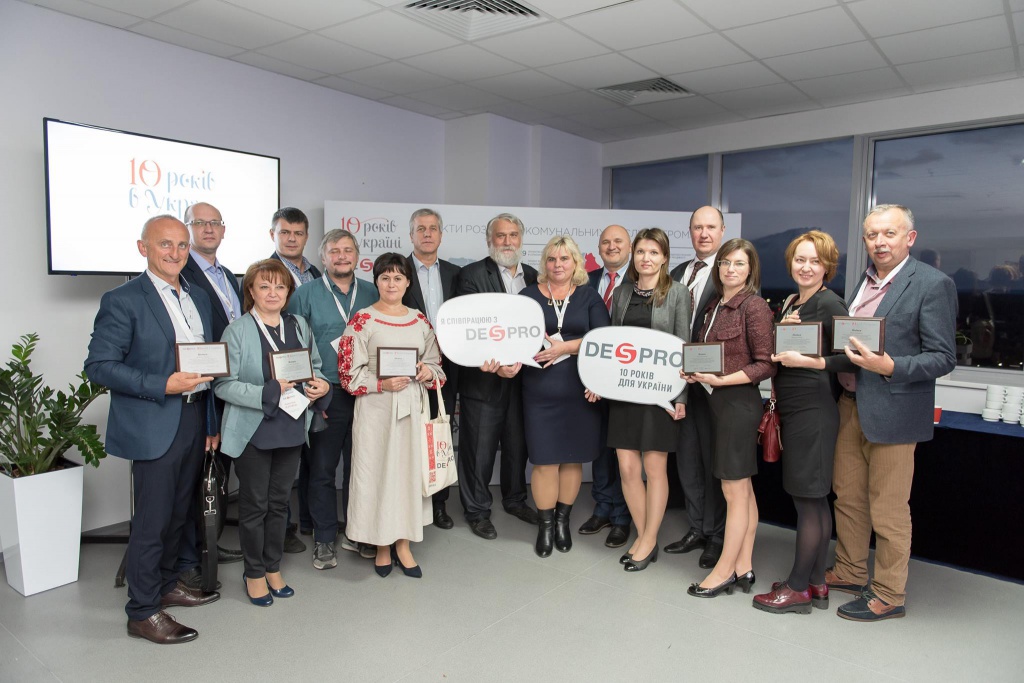
We expect that positive emotions, the sense of unity and cohesion prevailing during those two days when the DESPRO Partners Forum was carried out would remain with its participants for a long time, and the groundwork of the round tables and sections would become a solid foundation for further cooperation and new joint achievements.


